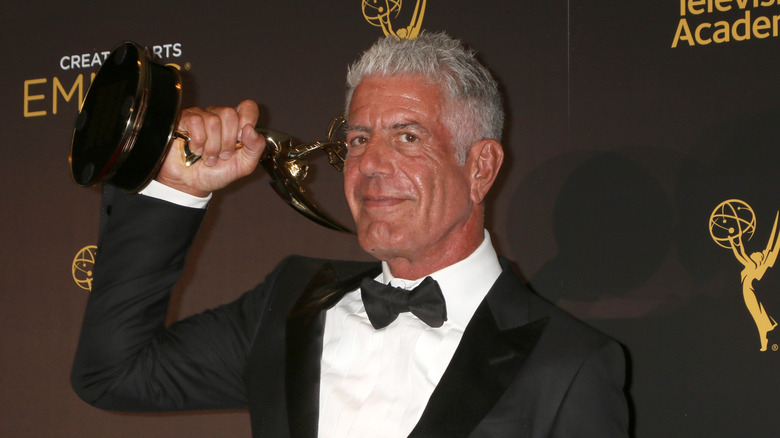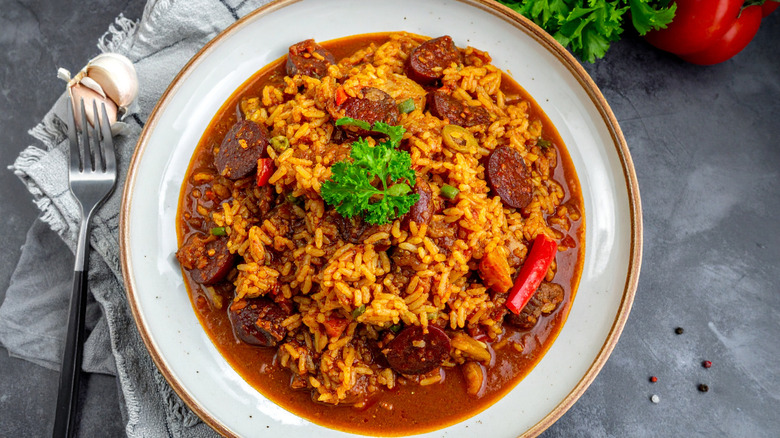This Is What Anthony Bourdain Really Thought About Trendy Hybrid Foods
Fusion cuisine makes a splash with everyday eaters (does anyone else remember the sushi burrito craze?). The genre continues to grow year over year with an estimated 8% of U.S. restaurants offering some kind of fusion dish. Yet, despite fusion cuisine's popularity, a lot of professional chefs avoid those dishes like the plague, stating they often don't deliver on balance or depth. One of the more nuanced positions comes from Anthony Bourdain, who put particular emphasis on why a chef would create a fusion dish. Is the chef expressing something unique or chasing a trend for cash?
It's fun thinking about the outrageous things he ate, but it just goes to show how open-minded he was when it came to food. In an interview with Eater, Bourdain said of fusion cuisine: "if it's done cynically... If it's done as a marketing scheme, of course I'm gonna react negatively." Bourdain was more concerned with the intention of the chef, as he went on to state that he's had some incredible Japanese-Italian fusion foods. Bourdain does not hate fusion cuisine nor does he avoid it like the plague, but it has to be done as an expression of the chef's personality.
His shining example is David Chang, who started Momofuku. For Bourdain, Chang's restaurants and fusion dishes are an expression of Chang's life. An American born of Korean parents who spent time in noodle shops with his dad and taught English in Japan went on to open restaurants that infuse American, Japanese, and Korean cuisines. And while Bourdain was known for hating his fair share of food trends, it was always because he loved food and hated mediocrity.
What is authentic cuisine, anyway?
In the Eater interview, Bourdain went on to make an excellent point: What do we mean when we talk about "authenticity" in food? Is pasta and tomato sauce "authentic" to Italy even though pasta existed for centuries before Roman times and tomatoes are from Peru? The former admittedly has a long, hard-to-pin-down history, yet pasta and tomato sauce is considered a quintessentially Italian dish. (Fun fact: When tomatoes were first introduced, Europeans avoided them for fear of poisoning.)
Arguably, when Bourdain is asking about authenticity, he's really asking about a dish's history. Let's think about this using one of America's most distinctive dishes: jambalaya. The exact origins aren't known, but it has influences of Spanish, French, and West African roots.
The core concept of the dish is a lot like paella: rice cooked with seafood, meat, and spices. But this is also very similar to jollof rice, a dish found all throughout Western Africa, where many of the slaves in Louisiana came from. You see French influence on the ingredients: the holy trinity in Creole cooking (onion, bell pepper, celery) is a variation of the French mirepoix (onion, carrot, celery).
Today, we think of Jambalaya as perfectly authentic. Although it has a very tragic and fraught history, we still see the same parallel to pasta in tomato sauce: ingredients and people responding to changing circumstances over time. It's less about what's the "real" and "authentic" version of each dish, and more about what we can learn from the history of a dish.

